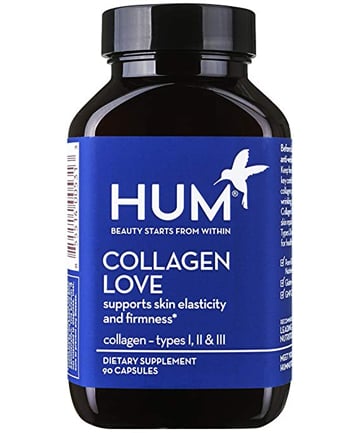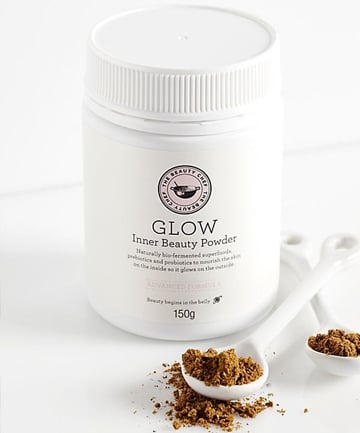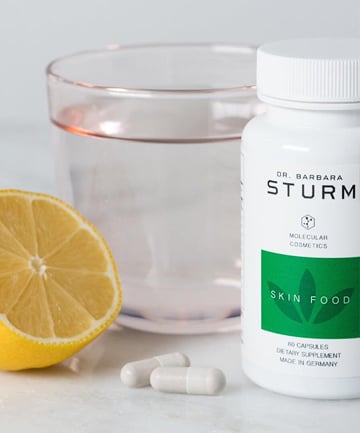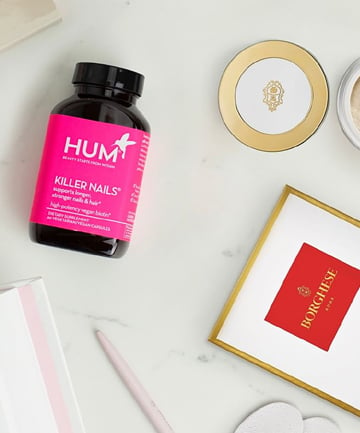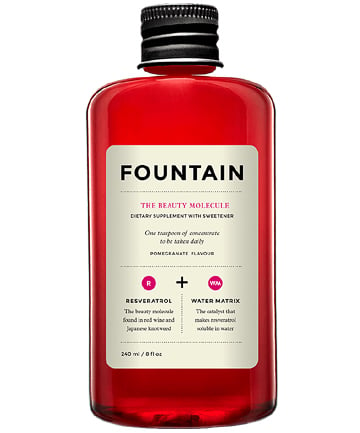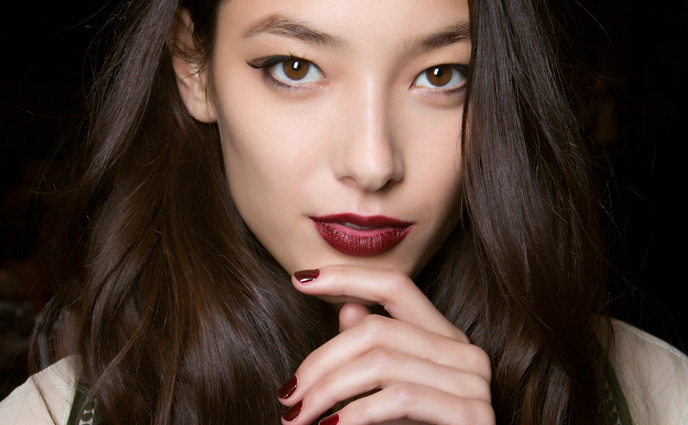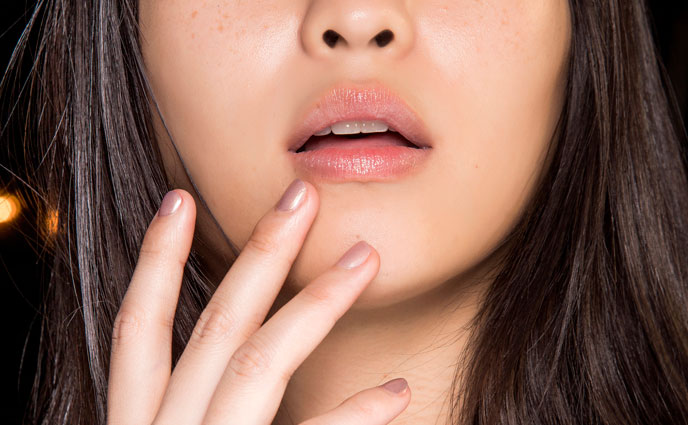You likely know what they look like, but can you accurately define beauty supplements? Some might think it's a trendy term for vitamins. That's part of it. Board-certified dermatologist Dr. Julie Russak says that a supplement, aka a nutraceutical, is a term that's "used to cover any food derivative meant to supply a diet" where it's deficient. So, a vitamin, amino acid product, mineral, enzyme supplement and/or herb or botanical can all count. Beauty supplement "is more of a pretty term (pun intended) to convey the beauty benefits of supplying the body with a nutrient it lacks," she says.
According to Michelle Blaisure, a certified for trichologist for Bosley Professional Strength, beauty supplements are designed to help support, nourish and enhance the quality of hair, skin and nail health. She says many supplements contain vitamins needed for healthy cell function, plus added minerals and botanicals that help boost results. Examples include Hum Nutrition Collagen Love, $40, and Goop Goopglow Morning Skin Superpowder, $12.
Vitamins are a specific kind of supplement that's not synthesized by the body but are required for optimal metabolic processes. Similarly, beauty supplements are any type of ingredients that we use to supplement nutrition and support skin, hair and nails wellness, says Karin L. Hermoni, PhD, head of science and nutrition at Lycored. Some beauty supplements can contain vitamins, like vitamins A, C and E, which have many skin benefits. Vitamin C is known to maintain collagen, a protein that provides structure to skin to keep it fresh-as-a-daisy youthful.
Beauty Supplements and Natural Compounds
Hermoni says that some beauty supplements can be based on natural compounds. These are things we wouldn't necessarily call vitamins and include derived antioxidants such as carotenoids and polyphenols. Tomato carotenoids like lycopene, lutein from marigolds and astaxanthin from algae are common carotenoids in beauty supplements. Popular polyphenols include curcumin from turmeric, carnosic acid from rosemary and olive polyphenols.
Try: The Beauty Chef Glow Inner Beauty Powder, $70
Image via @thebeautychef
This would turn into a very long science lesson if we were to get into the finer points. "Because supplement ingredients are so varied it is complex to describe how each individual ingredient works," says skin expert Dr. Robb Akridge, co-founder of Clarisonic. "In general, supplements make up for any dietary deficiencies consumers may have from a poor diet."
Modern diets can often be low in nutrients like B12, zinc and omega-3, Blaisure says. A deficiency in certain nutrients negatively impacts cells' ability to produce new cells. This will show up in a physical level in hair, nails and skin. Beauty supplements help fill the void. Additionally, they boost skin's defense mechanisms, including those for stress, and increase skin's brimming-with-health glow. With time, the results should be noticeable in the form of longer, stronger nails and hair, and more radiant skin.
Try: Dr. Barbara Sturm Skin Food Supplement, $95
Image via @drbarbarasturm
It sounds like beauty supplements have major potential, but things become problematic when we look at the claims from companies. Hermoni says that the world of dietary supplements is very different from the pharmaceutical industry when it comes to regulation. "Unlike pharmaceutical drugs, supplements are not meant to cure or treat any disease," she says. "Typically on the label of dietary supplements, we will find a disclaimer highlighting that the statements have not been evaluated by the Food and Drug Administration (FDA)." Russak adds that federal law does not require dietary supplements to be proven safe to FDA's satisfaction before they are marketed. "This means there are no strict formulaic regulations or supervision," she says.
Akridge says that in 2000, the FDA stipulated the structure of claims companies could put on supplements, allowing such claims as "Vitamin X helps promote..." or "it helps maintain..." but brands now had to add the following disclaimer: "This statement has not been evaluated by the Food and Drug Administration. This product is not intended to diagnose, treat, cure, or prevent any disease."
Blaisure points out that supplements are still regulated in terms of using "safe" ingredients and that the FDA will test ingredients if they receive a large number of complaints about a product.
Try: HUM Nutrition Killer Nails, $20
Image via @humnutrition
As for the promising claims beauty supplements make, Akridge says it goes back to naming. "The fact that brands call their supplements 'beauty supplements' means that what it contains is known to help support or maintain the health of skin," he says. The issue is, it's very difficult to prove a certain vitamin or mineral will improve any feature when we are constantly eating foods that contain those same compounds. Furthermore, he says that it's typical for a lot of the supplement claims to be based on cases where people had a deficiency in the vitamin(s).
Another issue is that beauty supplement claims might not be based on scientific research. Akridge says that some cases could be based on perception studies where people are asked if they see improvement (i.e. softness, tightness, brightness) to their skin/hair/nails after taking the supplement for a period of time. Additionally, he says that the placebo effect isn't taken into account in a lot of cases. With the placebo effect, people want to believe something good is happening by taking the supplement.
It's starting to sound murky, isn't it? But things are hopefully improving. With the boom of beauty supplements, there has been greater consumer awareness. Hermoni says that this had led to increasing transparency, clinical responsibility and implementing self-regulation procedures in the industry.
Try: Fountain The Beauty Molecule, $28


